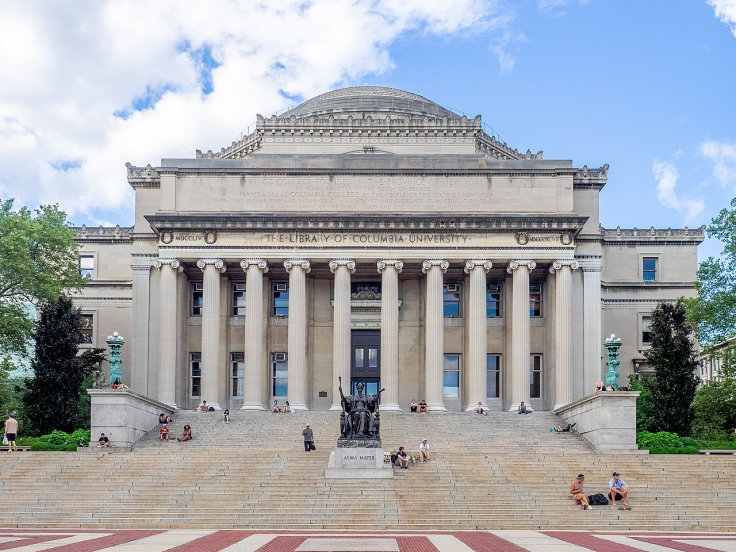Columbia University Deans Removed After Antisemitic Texts Spark Controversy Amid Campus Tensions
ByIn a historic measure, three deans at Columbia University have been placed on indefinite leave pending the revelation of text messages that the three had exchanged during the course of a panel discussion devoted to Jewish life on campus.
At issue are text messages that, disturbingly, invoked ancient anti-Semitic tropes. The university has refused to divulge precisely what the messages said but allowed that these messages were deeply troubling.

The Incident and Immediate Fallout
The incident occurred during a panel discussion entitled "Jewish Life on Campus: Past, Present, and Future," which took place over reunion weekend in May. It was only the most recent in the slew of those who hope to address shifting Jewish student experiences at Columbia in the wake of tensions that arose amid the Israel-Hamas conflict. But during that panel, the deans traded text messages that referenced stereotypes about Jewish wealth and privilege; the sentiments students reported belittled the valid concerns of Jewish students.
The texts were published by the conservative website Washington Free Beacon and promoted by the Republican-led House Committee on Education and the Workforce. One of the texts, according to the sources, read, "Hard to hear the woe is me," which indicated that she was dismissive of the problems being raised by the Jewish students. The texts were criticized by the committee, chaired by Rep. Virginia Foxx, a Republican of North Carolina, which said Jewish students deserve better than to have harassment and threats brushed off as "privilege."
READ MORE : Columbia University Places Administrators On Leave Over Insensitive Text Messages During Antisemitism Panel
Administrative Actions and Responses
The leave of absence for three administrators was announced, namely Susan Chang-Kim, vice dean and chief administrative officer; Cristen Kromm, dean of undergraduate student life; and Matthew Patashnick, associate dean of student and family support. Although these students have not so far given any public reaction, a statement from the President of Columbia University came in with condemnations. She said that no matter how much their intent could be justified in any term, the sentiment was inappropriate, reflecting an underestimation and lack of seriousness with regard to the concerns of the Jewish community.
An open letter with more than 1,200 signatures called for the departure of those administrators. That same letter singled out Columbia College's dean, Josef Sorett, who apologized last week for his interaction. Shafik did agree that Columbia would add an antisemitism and antidiscrimination training program this fall, showing the university's more serious commitment to the matter.
Broader Context and Implications
This whole controversy has been embroiled in an uptick in activism and tension on Columbia's campus. Protests on Columbia University's campus have intensified, with demands from pro-Palestinian groups to sever financial ties with Israeli-linked corporations. Concurrently, Jewish students' reports of increased antisemitic incidents have prompted federal investigations into the university's response.
The battle over how the university is responding to these two pressures is now heading into increasingly pitched territory. Some critics contend that administrators were sluggish in tackling antisemitism, while others allege suppression of pro-Palestinian viewpoints. The dean incident has heightened these tensions, questioning the university's inclusivity efforts.
It's time for accountability of Columbia's leadership in balancing these countervailing demands. The decisive moment of proof of this commitment to dealing comprehensively with antisemitism and discrimination of all forms will come this fall with the new training program. How well this will succeed in healing tears in the campus community and ensuring that students of all backgrounds feel safe and supported is yet to be determined.
The ousting of three deans from Columbia University is a throwback to times of strong action that needed to be used in fighting antisemitism in higher education. It speaks to the fact that universities really need to act decisively and fast against all forms of discrimination if they hope to foster a learning environment where students from all spheres can coexist without fear of bias or prejudice. The eyes of the academic world will watch as Columbia goes forward into very challenging waters.
RELATED ARTICLE : Columbia University Settles Lawsuit Over Campus Safety Amid Protests
© 2025 University Herald, All rights reserved. Do not reproduce without permission.








